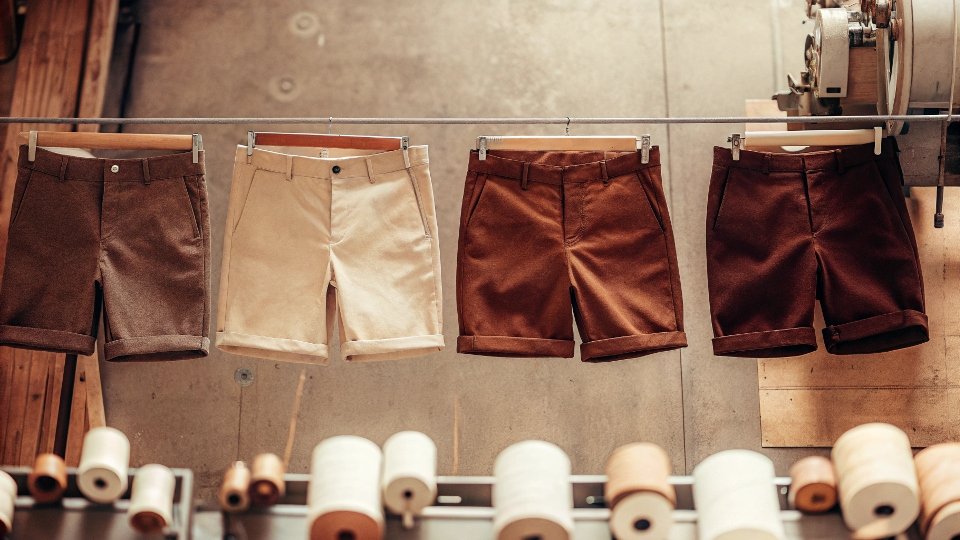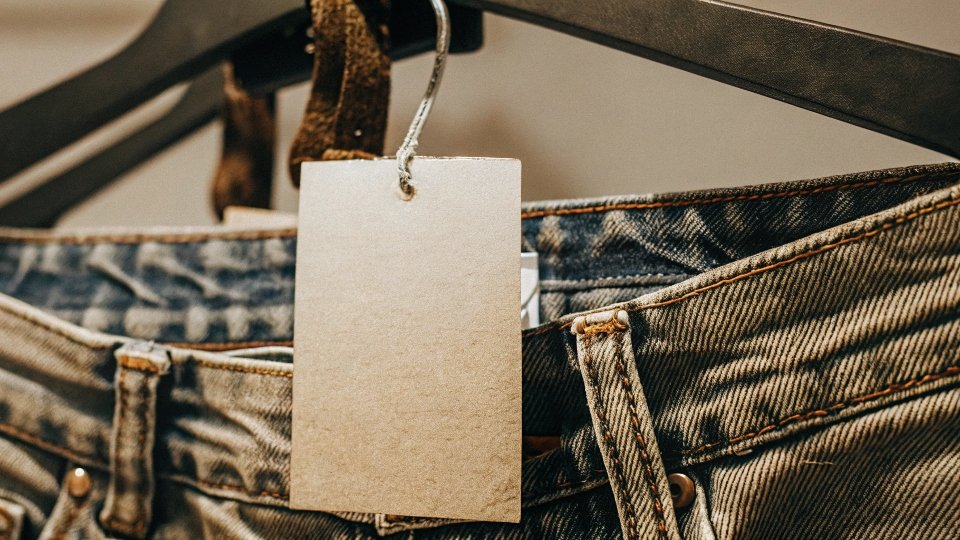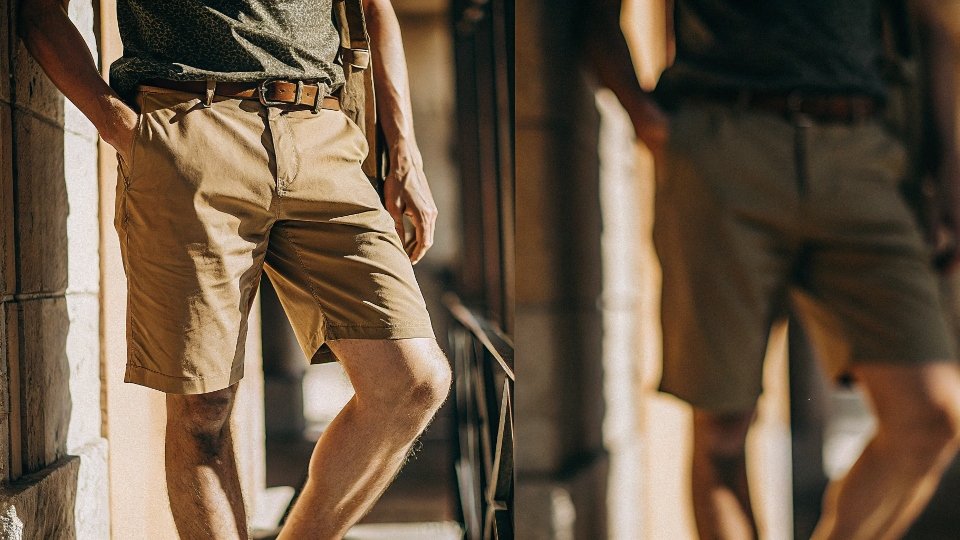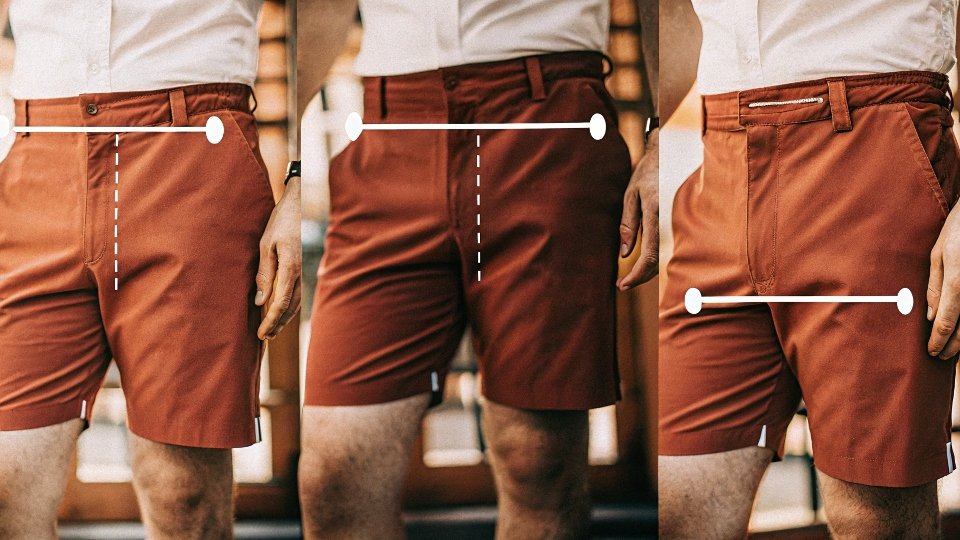Your designs for men's shorts are ready, but finding a supplier feels impossible. You're worried about quality control1, high order minimums, and getting lost in a sea of generic options. Your brand's success hinges on making the right choice, and you can't afford a mistake.
You can get men's shorts wholesale2 from three primary sources: large B2B marketplaces like Alibaba, industry trade shows like the Magic Show, or by partnering directly with a specialized manufacturer3 who can create your unique designs.
Choosing a supplier is the most crucial decision you'll make. It’s the bridge between your vision and a real, sellable product. My friend who started his own clothing line put it perfectly: "You can buy on Alibaba... or go to an exhibition like the Canton Fair ... but the most important thing is to have a friend introduce you to a reliable manufacturer." He's right because there isn't one simple answer. The best source for you depends entirely on what kind of shorts you want to create. Understanding these channels will help you find a true partner, not just a supplier.
How much is a good price for shorts?
You're getting quotes that are all over the place, making it impossible to budget. You don't want to overpay, but you are also terrified that choosing the cheapest option will result in a poor-quality product that damages your brand's reputation.
A good wholesale price for shorts can range from $5 for a simple cotton pair to over $25 for complex, garment-washed denim shorts. The price is determined by fabric quality, construction complexity, order quantity, and finishing processes4.
As a factory owner, I see exactly what goes into the cost of a garment. There is no single "good price." The price reflects the work. Think about it like this: a simple pair of elastic-waist fleece shorts uses inexpensive fabric and takes very little time to sew. They will be cheap. But now consider a pair of men's denim shorts. A designer like Dean would send me a tech pack specifying a particular kind of selvedge denim, which is more expensive. The design might have complex pockets, a zip fly with custom hardware, and reinforced belt loops. Then comes the washing process, which is an art form. A vintage wash with hand-sanding and slight distressing can take hours of skilled labor per piece. Every single one of those details adds to the final cost. When you get a quote, don't just look at the final number. Ask what's behind it. A higher price often means better materials, more durable construction, and a more desirable finish.
| Feature | Basic Wholesale Short | Premium Private Label Short |
|---|---|---|
| Fabric | Standard cotton twill | Custom-milled selvedge denim |
| Construction | Simple, pull-on style | Zip fly, riveted pockets, bar tacks |
| Finishing | Basic piece dye | Multi-stage enzyme wash, hand-sanding |
| Est. Price | $5 - $10 | $18 - $30+ |
Are 7-inch shorts too short for guys?
You see different inseam lengths everywhere and are paralyzed by the choice. You worry that picking a length that's "too short" or "too long" will alienate your target customer and leave you with unsold inventory.
No, 7-inch shorts5 are not too short; they are a modern and versatile standard. They typically hit a few inches above the knee, offering a clean, contemporary look that works for most men and builds.
The "perfect" inseam is all about proportion and brand identity, not a strict rule. But in my twenty years of making jeans and shorts, the 7-inch inseam has become the modern sweet spot. It's the safest and most commercially viable length for a new brand. It avoids looking dated like some longer shorts can, and it's not as trend-driven or revealing as a 5-inch inseam. Think of the inseam as a dial for your customer. A 5-inch inseam is for a younger, more athletic or fashion-forward guy. A 9-inch inseam is for a more traditional, classic customer who prefers the hem to hit right at the knee. At my factory, DiZNEW, we produce all lengths, but the bulk of our orders for contemporary men's brands are for 7-inch shorts. It’s the perfect middle ground that looks stylish and intentional without making the average guy feel uncomfortable. It’s long enough to be classic but short enough to feel modern.
| Inseam | Typically Hits | Best For |
|---|---|---|
| 5-inch | Upper-thigh | Trendy, athletic, bold styles |
| 7-inch | Mid-thigh (above knee) | The modern standard, versatile |
| 9-inch | Top of the knee | Classic, traditional, conservative |
| 11-inch+ | Below the knee | Niche, skate/workwear style |
Are long shorts coming back for men?
You've seen influencers and fashion articles showing off baggy, knee-length shorts. This makes you wonder if this is the next big thing you need to jump on, or if it's just a fleeting micro-trend that will die before your product hits the shelves.
Yes, longer shorts, often called "jorts6" or Bermuda shorts, are having a comeback in specific fashion circles. This trend is driven by Y2K and skate style nostalgia, but it has not replaced the much more popular standard of above-the-knee shorts.
I'm definitely seeing this trend from my factory floor. We are getting more requests for men's shorts with 10 or 11-inch inseams and much wider leg openings. It’s a real trend, but you have to understand who it’s for. This isn't for the mainstream customer. It’s for the fashion-forward consumer who follows runway trends and vintage aesthetics. The look is very specific, inspired by 90s skaters and 2000s hip-hop culture. For these "jorts," designers are requesting heavy, rigid 100% cotton denim, often with a raw hem and a light vintage wash to make them look authentic. It's a statement piece. For a designer like Dean, creating a collection for a high-fashion boutique, including a long short is a very smart move. It shows he's current. However, for a brand building its core collection, I would still advise making the 7-inch short your hero product. The long short is an exciting, fashion-forward style, but the shorter, modern fit remains the commercial winner by a huge margin.
How do you buy shorts that fit for men7?
You know that fit is everything, especially for something as simple as shorts. A poor fit looks sloppy and is the number one reason for customer returns, which can kill a small brand's profitability and reputation.
To buy shorts that fit, men should focus on three areas: the waist should be snug without needing a belt, the seat should have room for movement without sagging, and the thigh should be skimmed, not squeezed.
A great fit is about more than just the waist size. At DiZNEW, we build patterns based on precise measurements for the entire garment, because a fraction of an inch can make all the difference. When you are assessing fit, here is what to look for. First, the waist. It should sit comfortably at your natural waist or hips (depending on the rise) and stay up on its own. If you need a belt to hold them up, they're too big. Second, the seat. This is the most common fit problem. You should be able to sit and squat without the fabric pulling tight across your rear. Conversely, it shouldn't be so baggy that it looks like you're wearing a diaper. Third, the thigh and leg opening. The fabric should drape cleanly over your thigh. You should be able to pinch about an inch of fabric on either side; if you can't, they're too tight, and if you can grab a fistful, they're too loose. As a manufacturer, getting these three zones right is my obsession.
| Fit Zone | The Goal | The Test |
|---|---|---|
| Waist | Snug, not tight. | Stays up without a belt; you can fit two fingers in the back. |
| Seat | Contours without pulling. | Do a full squat. It shouldn't feel restrictive. |
| Thigh | Skims the leg. | Pinch the fabric at mid-thigh. You should grab about 1 inch. |
Conclusion
Sourcing shorts means finding the right manufacturing partner8. Success comes from focusing on the perfect fit—from your supplier's capabilities to the final garment's inseam, seat, and waist measurement9s for your customer.
-
Learn effective strategies for maintaining quality control in your clothing production. ↩
-
Explore various platforms to find the best deals and quality for your men's shorts. ↩
-
Find tips on locating manufacturers who can create unique designs tailored to your brand. ↩
-
Learn about various finishing processes that enhance the quality and appeal of clothing. ↩
-
Discover why 7-inch shorts are considered a modern standard in men's fashion. ↩
-
Learn about the trend of jorts and how they fit into contemporary men's style. ↩
-
Get tips on achieving the perfect fit for men's shorts to enhance customer satisfaction. ↩
-
Find guidance on selecting a manufacturing partner that aligns with your brand's vision. ↩
-
Discover how to measure waist size accurately for the best fit in men's shorts. ↩










